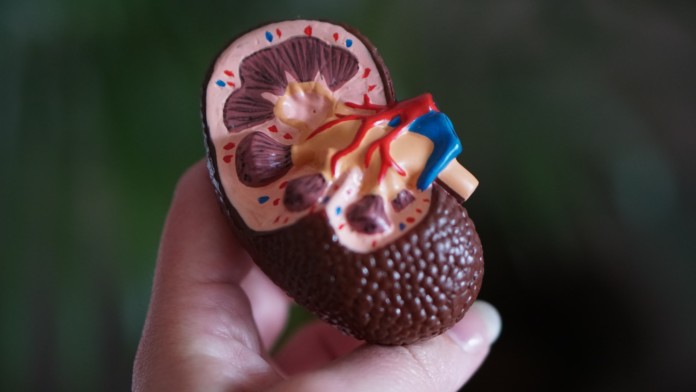The kidneys are crucial systemic features. Should these major organs grow damaged or diseased, stricken individuals could face serious, potentially life-threatening illnesses. Fortunately, certain ailments might be prevented through the practice of proper health maintenance techniques.
Kidney Overview
How Do Healthy Kidneys Work?
The kidneys are a primary component of the urinary tract. These components, which are located near the spine and rib cage are made up of crucial features called nephrons.
Nephrons contain even smaller particles called glomerulus. These parts filter blood and other liquids passing through the body and determine what substances should remain inside the bloodstream, in addition to those that must be removed.
Primary Functions
As stated above, the main function of one’s kidneys in liquid processing and cleaning. Specifically, however, said organs:
*Help the body eliminate waste
*Properly process medications and other drugs
*Assure the body maintains an adequate fluid balance
*Ensure levels of important nutrients remains safe
Additionally, kidneys execute other key functions, such as regulating blood pressure, controlling systemic production of red blood cells, and partaking in the creation and synthesis of the vital nutrient Vitamin D.
Issues Impacting Kidney Health
Medical researchers and healthcare providers maintain that several factors possess the capacity to influence kidney health. One’s risk of developing kidney and other significant urinary tract issues steadily rises when confronted with risk factors including:
Serious Systemic Ailments
Certain notable health maladies could precipitate a decline in kidney function, such as various cardiovascular illnesses, high blood pressure, and diabetes.
Lifestyle Habits
Engaging in actions like excessive alcohol intake, cigarette smoking, and the use of certain illicit substances could compromise kidney health.
Medications
Chronic usage of specific medications could adversely impact kidney function.
Genetic Predisposition
Researchers have found that persons with a family history of kidney diseases stand at a higher risk of developing said conditions themselves.
Obesity
Excess body weight places significant stress on the kidneys and can inhibit optimal operation.
Ethnicity
Individuals of African-American, Native-American, or Asian-American ancestry are believed to carry a greater risk for contracting kidney issues.
Internal Deformities
Persons born with inherent or structural flaws within their kidneys carry a better chance of developing illnesses later in life.
Age
One’s chances of experiencing kidney disease increases as they grow older.
Kidney Health And Disease Prevention Tips
Fortunately, individuals may lower their risk by engaging in kidney health maintenance techniques including:
Practice More Optimal Lifestyle Habits
One possible key to healthier kidneys is the adoption of optimal lifestyle habits. At-risk subjects should never start or immediately quit smoking, keep their body weight down through exercise and diet, greatly curtailing their alcohol intake, and cutting out the use of any illicit drugs.
Nutrition
Nutrition is vital to solid kidney function. Consumption of natural, vitamin-rich edibles, such as produce, lean meats, and whole grains is paramount. However, everyone, especially at-risk subjects are implored to limit salt ingestion. Salt inhibits the kidneys ability to eliminate water. This could result in high blood pressure, waste buildup, and potentially any number of serious kidney ailments.
Hydration
Though occasionally overlooked, hydration is pertinent to optimal kidney health. Therefore, individuals are encouraged to intake at least eight, eight-ounce glasses of water each day. However, they should not saturate their bodies. Too much water places undue strain on the kidneys and could threaten their capacity to function well.
Maintaining Hormonal Harmony
Numerous hormones, such as cortisol, adrenaline, thyroid hormone, and prostaglandins are impacted by kidney health. Additionally, growth hormone, or HGH, plays a paramount role in kidney operation. Researchers have found adequate levels of this hormone are crucial to their ability to maintain proper filtration rates and process blood adequately.
That said, HGH levels should be closely monitored by experienced medical professionals because said chemical is capable of producing numerous potentially serious negative effects if not administered appropriately. Such HGH side effects as head ache and pain in muscles are most common, most of the time are temporary.
Limiting Stress
Controlling stress is vital to kidney health. Overly tense subjects stand a better chance of developing kidney-damaging high blood pressure. Moreover, chronic tension is believed to increase systemic concentrations of stress hormones. In sufficient quantities, these substances can result in appreciable kidney problems.
Proper Medical Monitoring
Many kidney maladies develop slowly and stricken subjects will not experience symptoms until said ailment has reached an advanced stage. That said, doctors can weed out burgeoning kidney issues during tests administered during routine medical checkups. Ergo, scheduling such monitoring often proves paramount.
The Most Common Kidney Disorders
Improper health maintenance could lead to kidney disease. Some of the more common ailments include:
Chronic Kidney Disease
Chronic kidney disease is arguably the most common and potentially dangerous ailment people face. In most instances, this problem results from high blood pressure and diabetes, gradually progresses, and could lead to serious illness or death. Symptoms often include decreased urine output and increased water retention resulting in bodily swelling.
Kidney Stones
These occurrences happen when substances processed by the kidneys form into solid objects called stones. Said events often produce potentially crippling back and side pain but usually pass during urination. Doctors might need to break down large stones using various procedures.
Glomerulonephritis
This condition arises when the glomeruli grow inflamed. This might result from pathogens, certain drugs, and abnormal kidney structure. Stricken subjects might experience fever, urinary struggles, and painful urination. If left unchecked, the infection could spread to other bodily regions.
Emergency Situations
Kidney disease might advance to life-threatening stages. Persons experiencing symptoms, such as the inability to urinate for several days, high fever, vomiting, significant bodily swelling, and decreased appetite should warrant a visit to one’s local emergency department.




